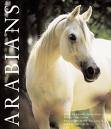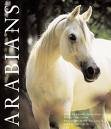♘امیرحسین♞
♘ مدیریت انجمن اسب ایران ♞
کتاب arabians که یکی از کتابهای پرفروش در زمینه اسب عرب هم هست. و در ان کشورهای مختلف مورد بررسی قرار گرفته از ایران و اسبهای آن نامی برده نشده است
نویسنده کتاب peter upton و جالب اینکه به کمک یک ایرانی Hossein Amirsadeghi حسین امیرصادقی نوشته شده است
برای اعتراض به حذف ایران در این کتاب متن زیر رو به ایمیل نویسنده:
jay@salopia.plus.com
fax: 0044/1588/640 775
خجالت آور ترین قسمت نویسنده ایرانیه
لطفا این ایمیل را تا میتوانید به jay@salopia.plus.com بفرستید تا بفهمه با کی طرفه
اعضایی که انگلیسشونم خوبه نامه های با مضمون تند تر بفرستند,
فقط بفرستید لطفا
نویسنده کتاب peter upton و جالب اینکه به کمک یک ایرانی Hossein Amirsadeghi حسین امیرصادقی نوشته شده است
برای اعتراض به حذف ایران در این کتاب متن زیر رو به ایمیل نویسنده:
jay@salopia.plus.com
fax: 0044/1588/640 775
" where is Iran?"
as you know Persia is the true homeland of the horses which are now called “ Arabian” and this name is chosen because of some historical events that we are sure you are quite aware of. We still call them : Asil .
By not mentioning Iran as the homeland of these horses in your book (Arabians ) you have igonored a big fact in the history. A history that wont change , our horses have traveled all the way to Europe they have been part of the history of the world and Persia is the origin of these horses.We expect you as an expert in Arabian Horses not to igonore this very crucial fact. And we all know Horses cannot survive in Arabian land with no water and only deserts and that camels were the only four legged creatures that the inhabitants of those lands used
to use . So in order to respect the history of the world we, Iranian Asil Horse breeders, want you to revise your book and mention the truth .
In case you need any help in this regard we are all willing to give the help. But please dont skip the facts.
Best Regards,
Persian horse society
Persian asil horse breeders
as you know Persia is the true homeland of the horses which are now called “ Arabian” and this name is chosen because of some historical events that we are sure you are quite aware of. We still call them : Asil .
By not mentioning Iran as the homeland of these horses in your book (Arabians ) you have igonored a big fact in the history. A history that wont change , our horses have traveled all the way to Europe they have been part of the history of the world and Persia is the origin of these horses.We expect you as an expert in Arabian Horses not to igonore this very crucial fact. And we all know Horses cannot survive in Arabian land with no water and only deserts and that camels were the only four legged creatures that the inhabitants of those lands used
to use . So in order to respect the history of the world we, Iranian Asil Horse breeders, want you to revise your book and mention the truth .
In case you need any help in this regard we are all willing to give the help. But please dont skip the facts.
Best Regards,
Persian horse society
Persian asil horse breeders
خجالت آور ترین قسمت نویسنده ایرانیه
لطفا این ایمیل را تا میتوانید به jay@salopia.plus.com بفرستید تا بفهمه با کی طرفه
اعضایی که انگلیسشونم خوبه نامه های با مضمون تند تر بفرستند,
فقط بفرستید لطفا




